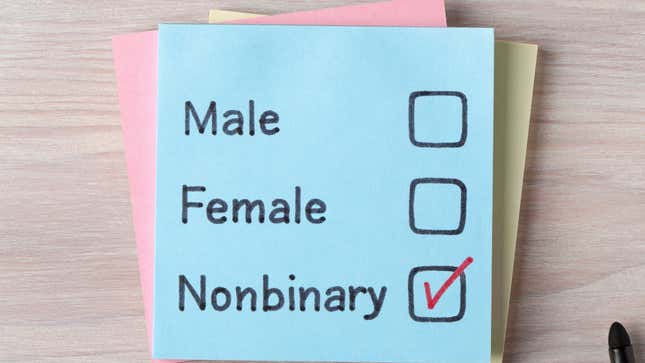
To paraphrase an LGBTQ activist catchphrase, “‘They’ are here, ‘they’ are queer and ‘they’ aren’t going anywhere”—at least, when it comes to a new, nonbinary definition of the word “they,” as announced by the editors at Merriam-Webster.
As NBC News reports, after considering things like the increasing number of people who use “they” as their personal pronoun over “he” or “she,” and the growing acceptance of the nonbinary use of “they” in a variety of texts, the dictionary’s editors have decided to add the following definition to its meaning:
—used to refer to a single person whose gender identity is nonbinary (see NONBINARY sense c)
// I knew certain things about … the person I was interviewing.… They had adopted their gender-neutral name a few years ago, when they began to consciously identify as nonbinary — that is, neither male nor female. They were in their late 20s, working as an event planner, applying to graduate school.— Amy Harmon
Merriam-Webster’s move comes as gender fluidity and thinking outside the “binary” construct of female and male when it comes to the human experience have become increasingly mainstream.
For example, Indya Moore, star of the hit FX series Pose, has stated a preference for the pronouns “they” and “them.” And just last week, singer Sam Smith announced that they would be using “they” and “them” as personal pronouns.
Merriam-Webster senior editor Emily Brewster tells NBC that the dictionary doesn’t dictate how words are used—people do.
“We are always aiming to reflect usage,” she said. “It’s very clear that this is fully established in the language at this point.”
And to all those grammar purists—or people who simply have an issue with gender nonconformity—Brewster says there is historical precedence for people changing how words are used.
Think of the word “you.”
“The word ‘you’ used to be only plural, which is why we still use the plural verb,” Brewster told NBC. “We say ‘you are’ even though we’re only speaking to one person. We also must adapt to the ‘they are’ for an individual person, and we can.”

